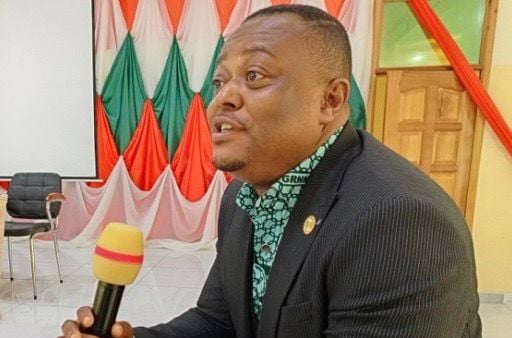The Ghana Registered Nurses and Midwives Association (GRNMA) embarked on a strike in June 2024 primarily to address long-standing concerns regarding unpaid allowances and the delayed implementation of their 2024 Collective Agreement. This industrial action, though occurring under the newly elected National Democratic Congress (NDC) administration, was not politically motivated or specifically targeted at the current government. The GRNMA clarified that the issues predate the NDC’s tenure, with negotiations and discussions commencing as early as February 2024 under the previous administration. The culmination of these discussions resulted in a signed agreement in May 2024, outlining the terms of service, which were scheduled to take effect on July 1, 2024. The GRNMA emphasized that the strike was a consequence of the government’s failure to adhere to the agreed-upon terms, not a sudden action aimed at the new administration.
The core of the GRNMA’s demands revolves around improving the working conditions and compensation of nurses and midwives in Ghana. Key demands include the implementation of a 13th-month salary, provision of fuel and medical allowances, incentives for those serving in rural areas, coverage of practicing license renewals, and the provision of uniforms. These demands are not new requests but are enshrined in the 2024 Collective Agreement, a legally binding document that represents the culmination of months of negotiations between the GRNMA and the government. The association stresses that a signed collective agreement should be honored and implemented as agreed upon, not subject to renegotiation unless specific provisions within the agreement allow for it. The GRNMA views the government’s delay in implementing these agreed-upon terms as a breach of contract and a disregard for the welfare of its members.
While acknowledging the legitimacy of the GRNMA’s concerns and the binding nature of the collective agreement, the government, specifically the Finance Ministry, has expressed concerns about the immediate financial implications of fulfilling all the demands. The Ministry argues that the current economic climate necessitates a more cautious approach, suggesting a deferment of some of the agreed-upon benefits to 2026. This proposal, however, has been met with resistance from the GRNMA, who view it as a further delay in addressing their long-standing concerns and a violation of the signed agreement. The GRNMA believes that the government’s financial concerns should not supersede the legally binding agreement and the well-being of essential healthcare workers.
In the interest of finding a mutually agreeable solution and prioritizing the health needs of the nation, the GRNMA has temporarily suspended its strike action. This suspension provides the government with an opportunity to reconsider its position and incorporate the GRNMA’s concerns into the upcoming mid-year budget review. The GRNMA’s decision to suspend the strike demonstrates their commitment to engaging in constructive dialogue and finding a resolution that addresses their members’ needs while considering the government’s financial constraints. This period of suspension provides a crucial window for both parties to engage in good-faith negotiations and reach a compromise that ensures the welfare of healthcare workers and the stability of the healthcare system.
The government’s proposed deferral to 2026 highlights the challenging economic climate and the difficult decisions facing the administration. While fiscal responsibility is crucial, the government must also recognize the importance of investing in its healthcare workforce. The nurses and midwives represented by the GRNMA play a vital role in delivering essential healthcare services to the Ghanaian population. Their well-being and working conditions directly impact the quality of healthcare delivered across the nation. A failure to address their legitimate concerns could lead to further unrest, potentially impacting the delivery of healthcare services. Therefore, finding a sustainable solution that balances fiscal responsibility with the needs of healthcare workers is paramount.
This situation underscores the importance of open communication and collaboration between labor unions and the government. Effective negotiation and compromise are essential for maintaining a stable and productive workforce, particularly within critical sectors like healthcare. The GRNMA’s willingness to suspend the strike and engage in further dialogue presents a valuable opportunity for both parties to work towards a solution that addresses the concerns of nurses and midwives while considering the broader economic context. A successful resolution will not only benefit healthcare workers but also strengthen the healthcare system and ultimately improve the health outcomes of the Ghanaian population.


